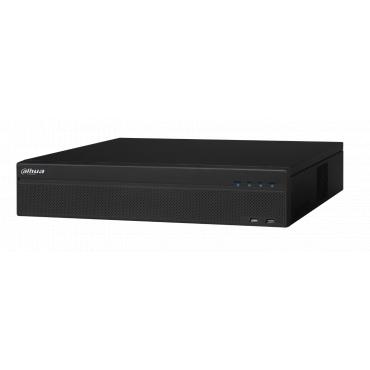Difference between revisions of "Sales/Choosing a NVR"
| Line 1: | Line 1: | ||
==Choosing a NVR== | ==Choosing a NVR== | ||
| − | |||
[[file:NVR60832.jpg|right|400x400px]] | [[file:NVR60832.jpg|right|400x400px]] | ||
When selecting an NVR, or Network Video Recording device, there are many things to consider. We will go over the following criteria to help assess which NVR is best for your clients. | When selecting an NVR, or Network Video Recording device, there are many things to consider. We will go over the following criteria to help assess which NVR is best for your clients. | ||
Revision as of 01:50, 25 May 2016
Contents
Choosing a NVR
When selecting an NVR, or Network Video Recording device, there are many things to consider. We will go over the following criteria to help assess which NVR is best for your clients.
Number of Channels
This criteria is fairly simple, but also one of the most important. With Dahua products you have several options:
- 4 Channels-Lite Series
- 8 Channels-Lite and Pro Series
- 16 Channels-Lite and Pro Series
- 32 Channels-Pro and Super Series
- 64 Channels-Super Series
- 128 Channels-Super Series
- 256+ Channels-Ultra Series
Storage
The amount of time a NVR can record is determined by many factors. Ultimately the primary bottleneck will boil down to the size of the hard drive , and the number of hard drives installed.
- 2 HDD x 4TB Capacity System-Lite Series
- 2 HDD x 6TB Capacity System-Pro Series
- 8 HDD x 6TB Capacity System-Super Series
- 16 HDD x 6TB Capacity System-Super Series
- 24 HDD x 6TB Capacity System-Ultra Series
System Bandwidth
Think of System Bandwidth as a DSL connection, only instead of your upload and download speeds, this connection determines how much data a particular system can receive from multiple cameras. Just like with a DSL connection, if you go over these specifications there might be unintended side effects such as cameras disconnecting or the NVR rebooting.
- 200 Mbps -Lite Series
- 320 Mbps -Pro Series
- 384 Mbps -Super Series
- 512 Mbps -Ultra Series
H.264 or H.265
H.265 systems are starting to hit the market. Dahua systems that are H.265 compliant will also work with H.264 cameras. So you don't need to worry about compatibility issues. You do want to match a H.265 NVR with H.265 cameras if you are dealing with bandwidth constraints.
All Dahua systems are compatible with H.264.
H.265 systems can be found in the following:
Audio Recording
If audio recording is a requirement, you want to consider purchasing an IP Camera that has, "Audio In"
Dahua NVRs do have audio in and out, but those are used exclusively for two-way talk only, and cannot record audio to channel 1 or any other channel.
IVS Features
The following are IVS features:
- Face Detect
- Tripwire
- Intrusion Detection
- Abandoned/Missing
- Scene Change
- Audio Detection
- People Counting
- Heat Map
- PTZ IVS Auto Tracking Setup
Please Note: Features will vary from model to model.
The following series is compatible with IVS and IVS Cameras:
Alarm In/Out
Do you plan on connecting an electronic buzzer, door sensor, or maybe a PIR sensor? Be sure to take into consideration the number of devices you plan on connecting to the NVR, and choose accordingly.
Please Note: The below is subject to change without notice. Always double check the specifications of the system before you purchase.
- Lite Series-4 Alarm In, and 2 Alarm Out connections.
- Pro Series-16 Alarm In, and 6 Alarm Out connections. There are also several that have 4 Alarm In, and 2 Alarm Out connections.
- Super Series-16 Alarm In, and 8 Alarm Out connections.
- Ultra Series-4 Alarm In, and 4 Alarm Out connections.
